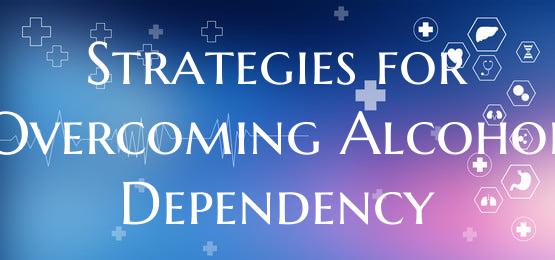
Strategies for Overcoming Alcohol Dependency
Alcohol dependency, also known as alcoholism, can have devastating effects on an individual's physical health, mental well-being, relationships, and overall quality of life. Overcoming alcohol dependency is a challenging journey that often requires a combination of strategies and support systems. Here are some effective strategies for overcoming alcohol dependency:
1. Acknowledge the Problem: The first step in overcoming alcohol dependency is acknowledging that there is a problem. Denial can be a significant barrier to recovery, so it is crucial to accept that alcohol has become a harmful and controlling force in your life.
2. Seek Professional Help: Consulting with a healthcare provider, therapist, or addiction specialist is essential for developing a personalized treatment plan. They can provide guidance, support, and resources to help you navigate the recovery process.
3. Join a Support Group: Connecting with others who are also struggling with alcohol dependency can provide invaluable support and encouragement. Groups such as Alcoholics Anonymous (AA) offer a sense of community, understanding, and shared experiences that can strengthen your resolve to stay sober.
4. Develop Healthy Coping Mechanisms: Find alternative ways to cope with stress, boredom, or negative emotions that do not involve alcohol. Engage in activities that bring you joy and relaxation, such as exercise, meditation, hobbies, or spending time with loved ones.
5. Create a Strong Support System: Surround yourself with friends, family members, or professionals who are supportive of your recovery journey. Communicate your needs and boundaries clearly to ensure that you have a solid network of individuals cheering you on.
6. Set Realistic Goals: Recovery from alcohol dependency is a gradual process, and it is essential to set achievable goals along the way. Celebrate small victories and milestones, and be patient with yourself as you work towards long-term sobriety.
7. Address Underlying Issues: Alcohol dependency is often linked to deeper emotional, psychological, or social issues. It is crucial to explore and address these underlying factors through therapy, counseling, or other interventions to prevent relapse.
8. Practice Self-Care: Prioritize self-care activities that promote your overall well-being, such as getting enough sleep, eating nutritious meals, and engaging in regular exercise. Taking care of your physical and mental health can boost your resilience and support your recovery efforts.
9. Avoid Triggers: Identify and avoid situations, places, or people that may trigger cravings or temptations to drink. Establish boundaries and create a safe environment that supports your commitment to sobriety.
10. Celebrate Successes: Recognize and celebrate your progress towards overcoming alcohol dependency. Reward yourself for your hard work, resilience, and determination to lead a healthier, alcohol-free life.
Remember that overcoming alcohol dependency is a challenging but achievable goal with the right strategies, support, and commitment. Stay focused on your recovery journey, be kind to yourself, and believe in your ability to create a fulfilling, sober life.